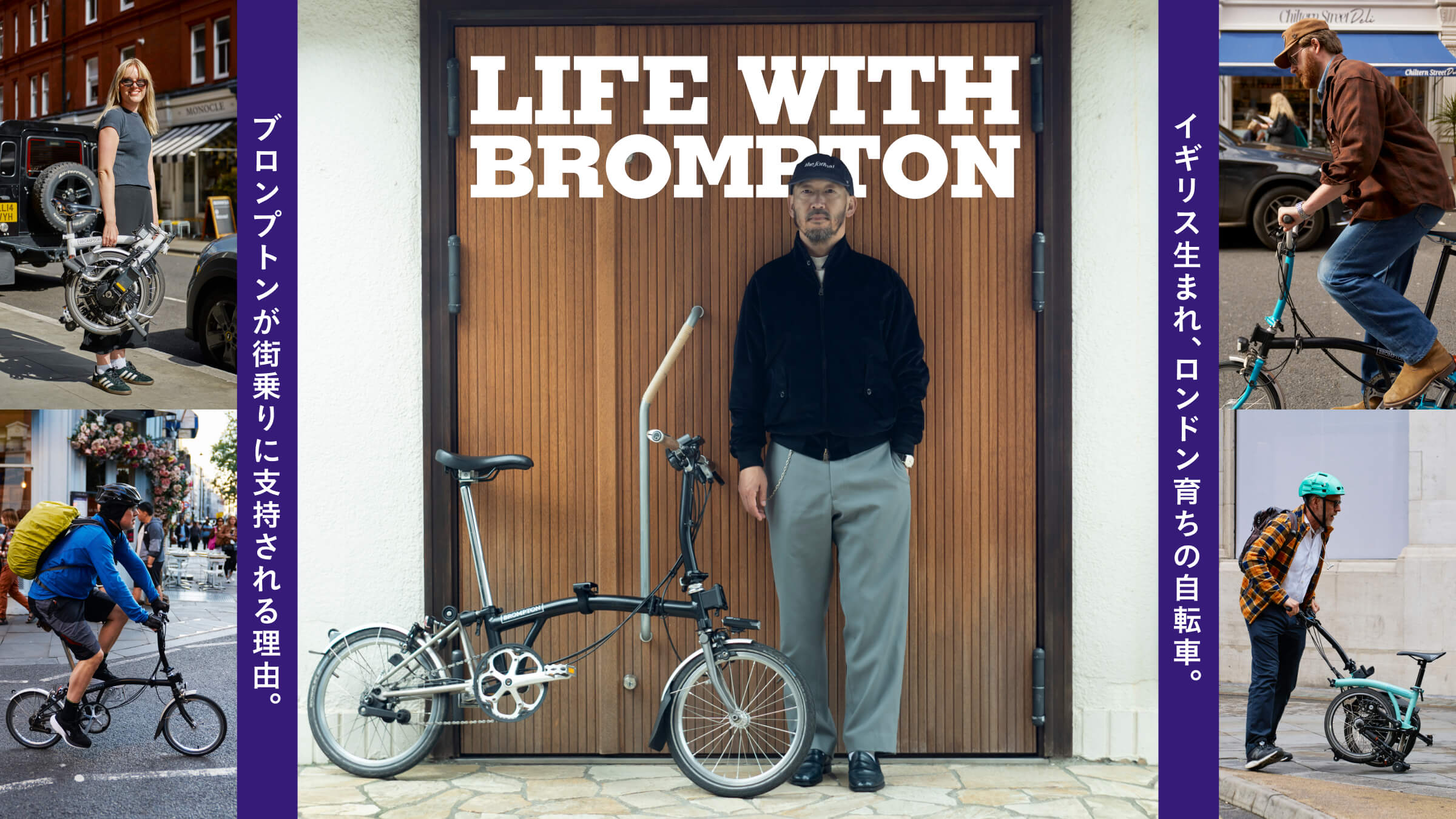Everyone sees the same goal in terms of quality and numbers.

I heard that you went to London in September this year to visit the Brompton factory and take user snapshots. What was it that made you decide to go there in the first place?
Kaneko: Of course I love Brompton, but I got to know some of the Brompton people in Japan through bicycle competitions, and that is how I ended up going to London this time.

Is the factory in London?
Kaneko: Is it in the suburbs of London? It's a place called Greenford, about 30 minutes by car from the center of London. The town itself has a very peaceful atmosphere, and there is a relatively new building where the Brompton factory is located.



It is very spacious, isn't it?
Kaneko: The ceiling was high and the space was spacious. About 300 people were working here. There were people of all ages, both sexes, and from all walks of life.

Kaneko: There were people working while listening to music, and the scene of people working freely was impressive. The factory manager who showed me around the factory communicated openly with the staff. Although they are supervisor and subordinate, I felt that they are conscious of creating a good environment and a good mood. I felt that they cared about their staff, and that creating a good environment for them would ultimately lead to the creation of good products.

Kaneko: She is a staff member in charge of welding and is highly skilled in this factory. Welding is a very important manufacturing process for Brompton bicycles. So new staff members are trained to acquire welding skills, and there is a training room in the factory for this purpose.

So you learn skills there, but at the same time you inherit the identity of the company.
Kaneko: Yes, it is. The training period is quite long, sometimes years.

Kaneko: And here is her weld. It's very beautiful, isn't it?
If welding is so important, it means that Brompton bicycles have so many welding points, don't they?
Kaneko: That's right. Nowadays, carbon is widely used, but carbon frames are made by pouring it into a mold. On the other hand, the folding nature of the Brompton requires the use of sturdy chromium molybdenum steel (chrome molybdenum steel), which requires more welding points.




Kaneko: The fewer welding points on the frame, the fewer parts are needed, and the fewer parts are likely to break. Basically, this would be better, but in the case of Brompton, the welding accuracy has been thoroughly improved, thereby eliminating this concern. I think that's why so many people support Brompton. Even if a bike is foldable and convenient, if it were easy to break, it would not have gained any fans.

As you mentioned earlier, the quality of the products is because of the preservation of the techniques and their proper transmission.
Kaneko: I was able to see various parts of the factory, but only the welding section had a tense atmosphere. I guess it is not something that can be easily imitated.


Kaneko: This is a bicycle storage area for factory workers. They have some prototypes inside, and they are trying various things while test-riding.
How many units are produced per day at this plant?
Kaneko: They produce about 300 units a day.
That's quite a lot.
Kaneko: We export our bicycles all over the world, so that's why we have such a large volume of them. That's how many people love them.
What were your impressions after visiting all the factories?
Kaneko: Stable, high-quality manufacturing. I felt that the environment and facilities for this were well prepared. That may be a matter of course, but I felt a sense of pride in the way the company does such a matter of course.



It sounds simple, but it is actually very difficult.
Kaneko: Yes, it is. I was also impressed by the fact that most of the parts are made here. I had an image that bicycles are assembled by outsourcing small parts, but in the case of Brompton, most parts are made and assembled in-house, without relying on outsourcing. I was surprised by that.



By doing so, it is easier to ensure stable quality, isn't it?
Kaneko: In addition to that, costs can be reduced. This makes it easier to maintain the environment and to deliver safe products to the market. Quality and safety are the most important aspects of bicycle production.

Kaneko: If I were to add one more thing that impressed me, I would say that each and every staff member has a very high level of awareness. Not only in the processes they are in charge of, but also in the numerical aspects such as costs and how to generate profits, which are also shared with each staff member.
By working with this understanding, we can visualize the meaning of what we are working for, can't we?

Kaneko: It was an atmosphere where everyone was working with the same goal in mind in terms of quality and numbers. I thought that was very good. When I sensed that kind of mood at the factory, I naturally felt glad that I had bought a Brompton. Every time I visit a factory, my love for the product deepens, and this time was no different. I had always taken good care of them, but I wanted to take even better care of them.









